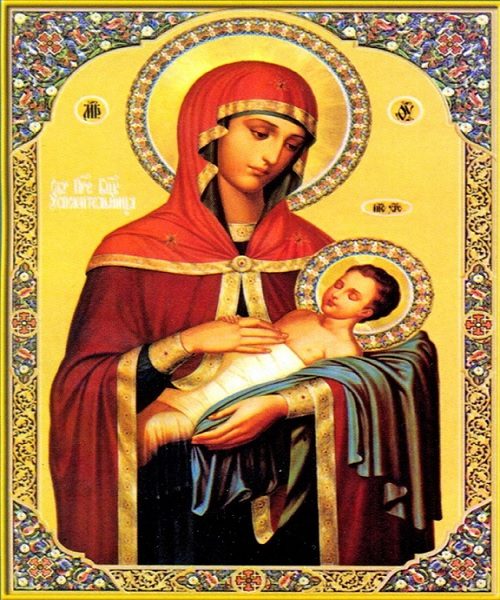Saint Alexei Medvenkof the Confessor († 22 August 1934)
3 September 2016‘He has put down the mighty from their thrones and elevated the humble’ (Luke 1, 52).
This hymn to the Mother of God is reflected fully in the spiritual personality of Fr. Alexei Medvedkof’.

With these words, Fr, Pavel Poukhalsjj began the funeral oration for Fr. Alexei, standing beside his coffin on 4 October, 1957.
The deceased had been born in 1867, in a village in the province of Viazma, a member of the family of a young priest who died after the child was born. A life of poverty and deprivation began for little Alexei. Nevertheless, as a child of a clergyman, he attended a Church school and went on to study at a Seminary, where he decided to follow his father’s example and serve the Church. Endowed with a fine voice and good ear, he was employed as a reader. Later, he married.
Many years passed and the desire for the priesthood never left him. He opened his heart to Father John Kronstadtskij, who encouraged him to proceed. Father Alexei presented himself to Metropolitan Palladij, was ordained deacon in 1895 and priest wo days later, on Christmas day. He was assigned to the small town of Vronda, where he remained for 23 years. Shortly before he died, he confessed to a friend of his that the grace of the priesthood had strengthened him in a tangible way. He’d become aware of the great responsibility he bore towards God and his own spiritual life was enriched by the care he had for the salvation of the souls which had been assigned to him. His mother made the ‘prosfora’ (altar breads) for the church.
In the 23 years he spent in Vronda, he conscientiously shouldered the Cross of the priesthood, doing everything with his power. He gave his love to the villagers who were his parishioners and his respect to the priests who were his colleagues. He knocked at the door of each and every soul, in order to bring it to God. He’d spend whole nights preparing his sermons and studied the works of the Fathers of the Church in order to make sure that his flock was properly instructed.
The administrative authorities recognized his work and expressed their admiration for him in a variety of ways. He received a number of honours and, in 1911, was awarded a pectoral cross by the Holy Synod.
The poverty of his province made it necessary for Father Alexei to undertake manual labour in the fields- sowing, harvesting, and so on, at the same time as performing his priestly duties.
This life continued until 1917, when he was arrested and confessed his faith to his persecutors. He was imprisoned, was subjected to humiliations and eventually to harsh bodily torture. They broke his arms and legs and a violent blow to the face destroyed a main nerve there. In the end, he was condemned to death, but his daughter volunteered to be a hostage and he was released from prison. His face continued to bear the marks of the torture and one of his eyes remained almost permanently open. Nevertheless, in 1919, in the midst of the general turmoil, he and his family managed to escape to Estonia.
He labored hard in the slate mines to support himself and his family. Even though he was a mere labourer, he never forgot his true vocation and served the Divine Liturgy in a neighbouring village.
In 1923, the Orthodox authorities in Estonia appointed him ‘supernumerary’ priest in a thriving parish. The ten years he spent in Estonia were exceptionally difficult. His works was beyond his strength and he lived in great poverty. His wife died after a serious illness.
Father Alexei asked Metropolitan Evlogij to transfer him to Paris and when he arrived with his family he was appointed to the small town of Ugine. The material conditions of his life improved, but the Lord permitted great moral trials. Not everyone appreciated his great humility and his true Christian meekness. And some people slandered him to the Metropolitan. Father Alexei simply prayed. His bodily health continued to fail. The limbs which had been broken caused him great pain and in the end he fell victim to cancer of the whole body. He had an emergency operation, but this brought no improvement.
He retained his spiritual clarity to the end, praying all the time and partaking of Holy Communion regularly.
He asked forgiveness of all those he knew and considered himself responsible for everything he’d suffered. With tears, he begged the Lord to receive him into His kingdom, not because of his virtues, but through ‘His mercy’.
Those who were with him on the eve of his death tell that the sang the whole night long, in a strong voice and, in the morning quietly gave up his spirit (22 August, 1934).
Source: Periodical Ανάπλασις, 1992, pp. 118-9.






